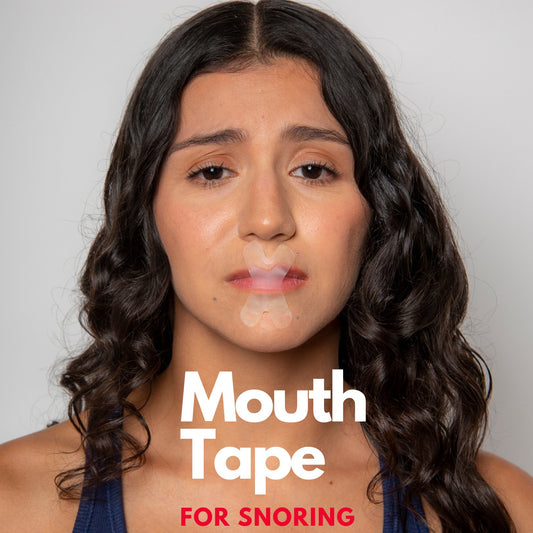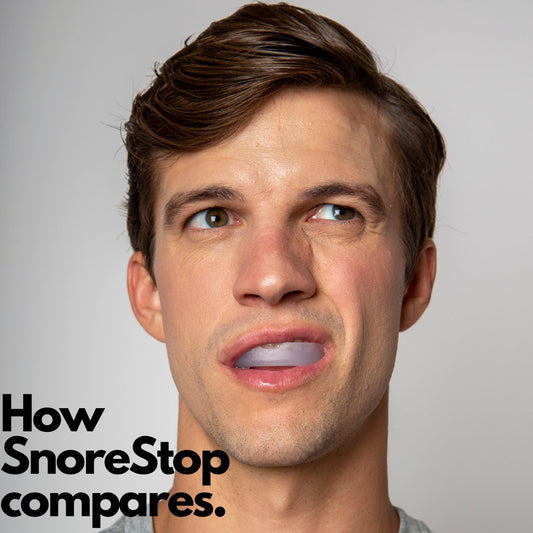By Kenneth H. Rifkin, N.D.
A few years ago, I started seeing more and more people coming to my clinic with snoring complaints. They were being told by their family members that the volume of their snoring was waking up the whole entire household and on occasion the neighbors. Most had tried the usual snoring remedies with no success.
Snoring is a problem that for years was not taken as a health concern by the medical profession. My patients were telling me that it was a serious concern of theirs.
What is snoring?
Snoring is both a sleep and a breathing disorder. Any narrowing of the upper air passages can encourage snoring. Large tonsils or adenoids, a lowering of the soft palate, a too relaxed tongue, elongated uvula (that kidney shaped object that hangs at the back of the mouth), or fatty deposits in the throat can all be looked at as a cause of snoring.
Snoring tends to get worse as people age because tissues in and around the airways start to sag. The mid-forties and up is when snoring really becomes more prevalent, according to the National Sleep Foundation. It is believed that between the ages of 60 and 65, 60 percent of men and 40 percent of women snore.
The noise we hear from someone snoring is produced by a vibration of the tissues in the throat. Throat muscle relaxation increases with sleep and the more relaxed the throat muscles are the greater the likelihood of throat tissue vibration and the sound of snoring.
Contributing factors:
Snoring increases significantly as people get older because the muscle tone in the throat muscles decreases with age.
- Being overweight is a common cause of snoring. A person who gains weight has excess fat deposits in the neck, which narrows the airway. Once men hit a shirt size of 17 they are candidates for weight-related snoring.
- Tranquilizers, alcohol, or extreme fatigue can aggravate snoring by deepening a person’s sleep, causing a greater than normal relaxation of the muscles and making the tongue to drop back more. The Sleep Disorders Clinic recommends not drinking alcohol less than four within four hours before bedtime.
- Smoking can contribute to snoring by producing excess mucus and causing throat membranes to swell and restrict air passages
- Sleeping on one’s back can cause the tongue to shift closer to the back wall of the throat, which narrows the airways. Elevating the head can help up to 30 percent of snorers, according to Toronto’s Sleep, Nose and Sinus Clinic. Another solution is to sleep on one’s side.
Is snoring a health issue?
Snoring is now recognized as a prominent symptom of sleep apnea, a potentially serious condition.
“Slight or occasional snoring may gradually develop into the heavy, more violent snoring that indicates sleep apnea……. The reason why snoring may progress to sleep apnea in some people and not others depending on the sum of various factors: breathing reflexes, structure of the airway, muscle coordination, and inherited tendencies.” -Ralph A Pascualy, M.D. Co-Author of “Snoring and Sleep Apnea”
In sleep apnea a person has periods when she/he stops breathing. When a snorer stops breathing during an episode of apnea, the part of the brain that controls respiration is triggered and the snorer is awakened. The snorer doesn’t usually know that s/he has momentarily awakened and s/he falls back asleep and starts snoring again. This cycle can repeat itself many times throughout the night.
These awakenings can seriously interfere with the quality of sleep a person gets. Sleep apnea can lead to “morning headaches, restless legs during sleep, mood swings, choking sensations, impotence, hypertension, heart disease, stroke, and even death” according to Dr. Smolley, co-author of “the Snoring Cure”.
People who have sleep apnea often wake in the morning feeling more tired than when they went to bed and complain of morning headaches.
If you have symptoms of sleep apnea you should consult a physician, have an examination and if indicated, an overnight sleep study done.
If you don’t have sleep apnea, then a few changes in your lifestyle and sleep habits might reduce or possibly eliminate your snoring.
Following are some tips and cautions I give my patients:
- 1. Sleep in a cool, well-ventilated room.
- 2. Darken the room or wear comfortable eye shades (your eyes can sense light even when your lids are closed).
- 3. Eliminate intrusive sounds.
- 4. Eat meals at the same time each day to get your body into a routine.
- 5. Avoid heavy meals before going to bed but don’t go to bed hungry.
- 6. Avoid drinks containing caffeine.
- 7. Try to exercise a least every other day but not immediately before sleep.
- 8. Sleep on a firm mattress with a low pillow.
- 9. No smoking, and drinking only in moderation; avoid the nightcap before bed.
- 10. Take a natural remedy for snoring.
Dr. Kenneth H. Rifkin is a naturopathic physician and a licensed acupuncturist in Portland, Oregon.








